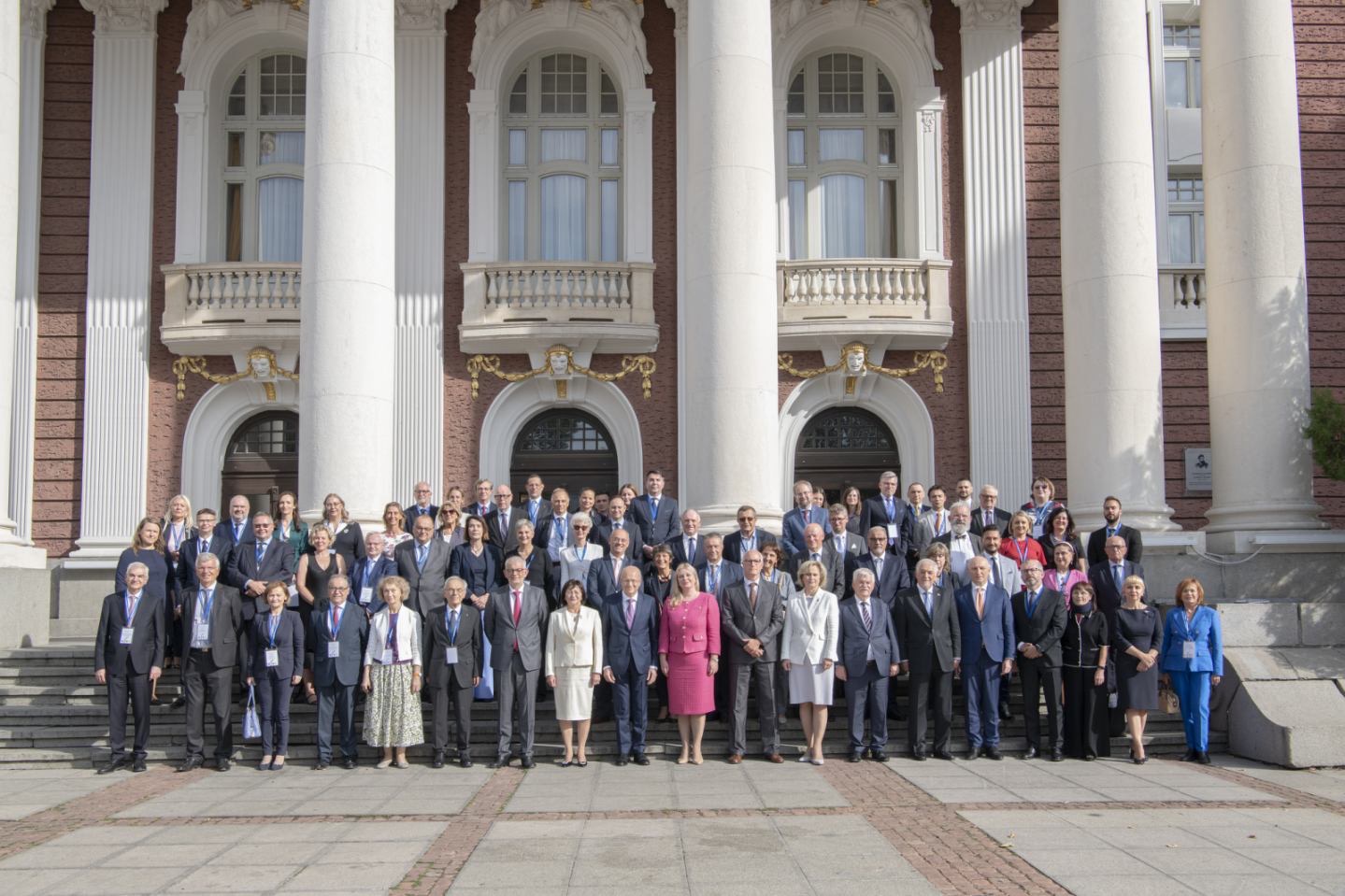Irēna Kucina: Mutual loyalty guarantees justice in the European Union
On 4 and 5 September 2025, the President of the Constitutional Court of the Republic of Latvia Irēna Kucina, Judge Mārtiņš Mits and the Head of Administration Marika Laizāne-Jurkāne participated in the international conference “EUnited in Diversity III: The Role of Constitutional Justice in the EU Common Legal Order” organised by the Court of Justice of the European Union and the Constitutional Court of the Republic of Bulgaria. Conference was held in Sofia, Bulgaria.
Opening the conference, President of the Court of Justice of the European Union Koen Lenaerts stressed that the constitutional courts of all 27 Member States do not work in isolation: “Mutual trust is extremely important, and it is also based on trust in the Court of Justice of the European Union. If a national court wishes to focus on aspects of the constitutional identity of its own country, it should do so by engaging in dialogue with the Court of Justice of the European Union, as, for example, the Constitutional Court of the Republic of Latvia did in the case concerning restrictions on the implementation of study programmes in foreign languages by private higher education institutions. Only through close cooperation can we ensure that fundamental rights, democracy and the rule of law are protected throughout the European Union.”
The President of the Constitutional Court of the Republic of Latvia presented her report “The duty of loyalty towards EU law in the constellation of protection of individual fundamental rights” at the conference’s panel discussion “Different National Constitutional Law Constellations Relevant for EU law”.
In her presentation, the President introduced conference participants to the principle of mutual loyalty, which underlies the European legal order and promotes trust and cooperation. Irēna Kucina stressed that the essence of the European legal order, as this discussion has shown, rests on the shared understanding that law is also a relationship – between institutions, between Member States, and above all, between law and the people it serves
She highlighted this with two examples from the case-law of the Constitutional Court of Latvia on the effectiveness of cooperation between Latvian state institutions and the European Union institutions in the context of the protection of the private person’s fundamental rights. In the 2019 judgment on the disclosure of the salaries for employees in State and local government institutions, the Constitutional Court emphasised that the principle of sincere cooperation implied an obligation for a Member State to refrain from adopting measures which could seriously impede the achievement of the result envisaged by the General Data Protection Regulation, even though the Regulation had not yet become applicable. In the recent case concerning the mortgage borrower protection levy and the related compensation for interest on the loan, the Constitutional Court, when referring questions to the Court of Justice of the European Union for a preliminary ruling, concluded that the purpose of the obligation of Member State authorities to consult with the European Central Bank is to ensure the quality of the decisions taken and the compliance of national legislation with the objectives set by the European Union in relation to monetary policy and financial stability. The case is still pending until the judgment of the Court of Justice of the European Union enters into force.
The President of the Constitutional Court emphasised that the adoption of an effective and fair regulation, and ensuring the highest realistic level of protection for individual fundamental rights, could only be possible when all the “players” in the national legal systems and the shared legal space of the European Union, as invisible as they might seem to one another, are within common and harmonious constellation of loyal cooperation. “Let us continue, through jurisprudence and dialogue, to build a Union where mutual loyalty is not a burden, but a commitment to shared justice,” said Irēna Kucina.
The conference also included a discussion among representatives of court administrations with the aim of strengthening institutional cooperation and facilitating the exchange of experience between the courts of the Member States. The discussion covered issues related to the impact of digital technologies on the work of courts, including solutions for using artificial intelligence to improve the efficiency of the work of courts.
The first conference “EUnited in Diversity” was organised by the Constitutional Court of Latvia in Riga in 2021 in cooperation with the Court of Justice of the European Union, which is why this year’s conference in Bulgaria is informally known as “Riga III”. “EUnited in Diversity” is an important forum for exchanging views on the role of national courts in protecting the European Union’s fundamental values, the rule of law and human rights. It brings together representatives from the constitutional and supreme courts of the EU Member States and the Court of Justice of the European Union.
Photo: Constitutional Court of the Republic of Bulgaria




